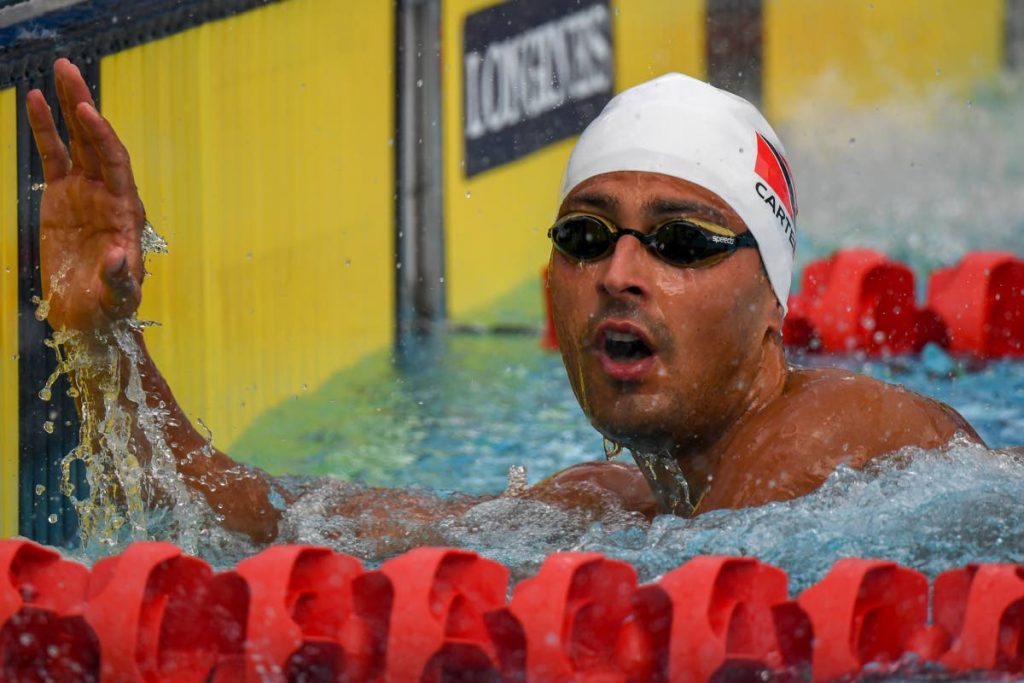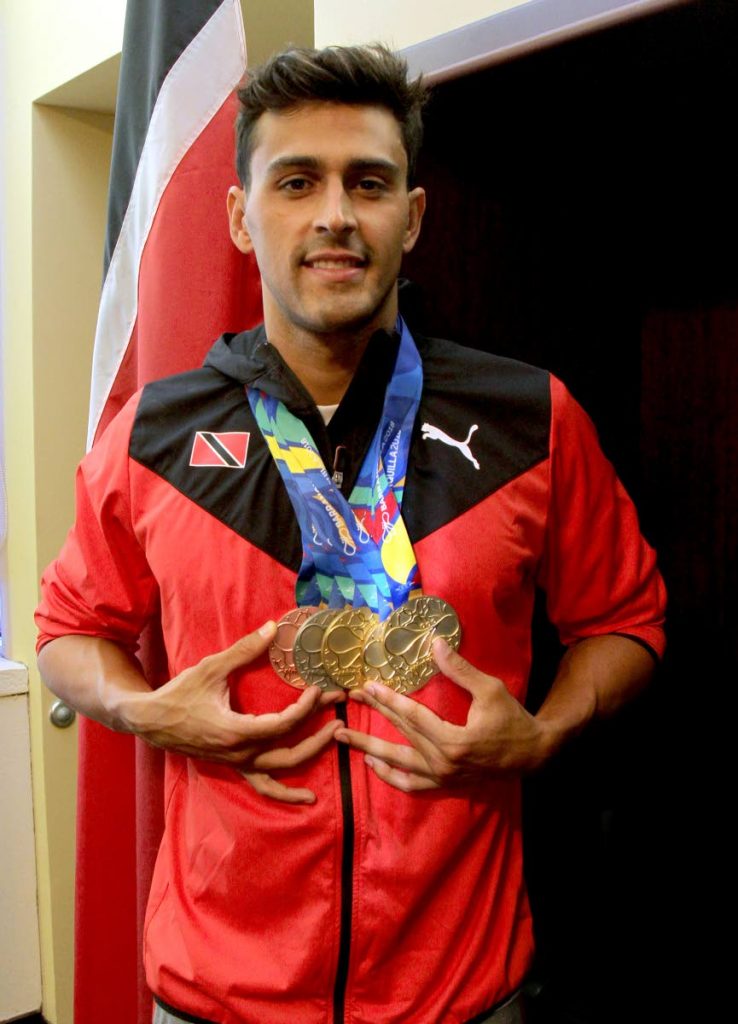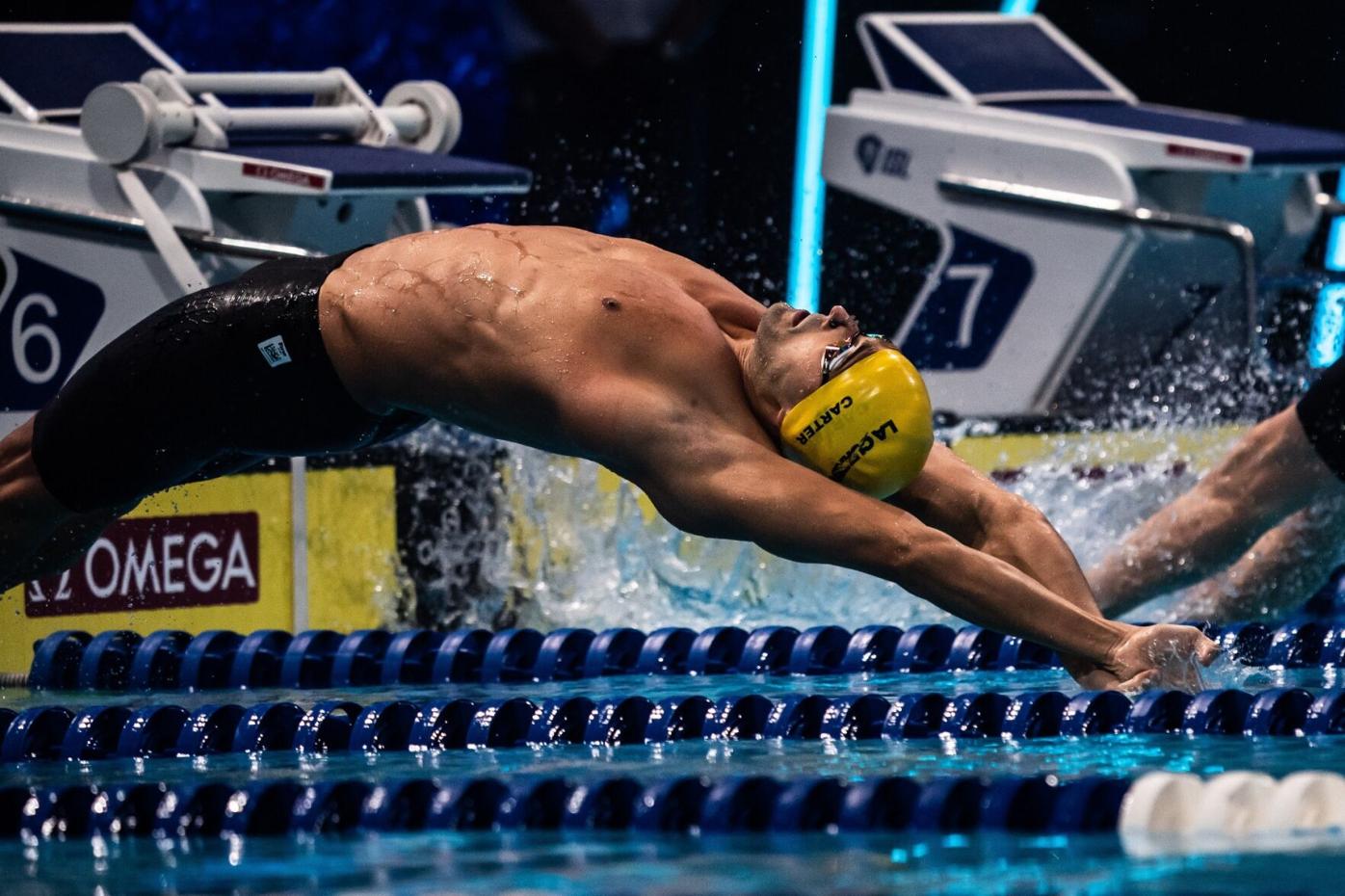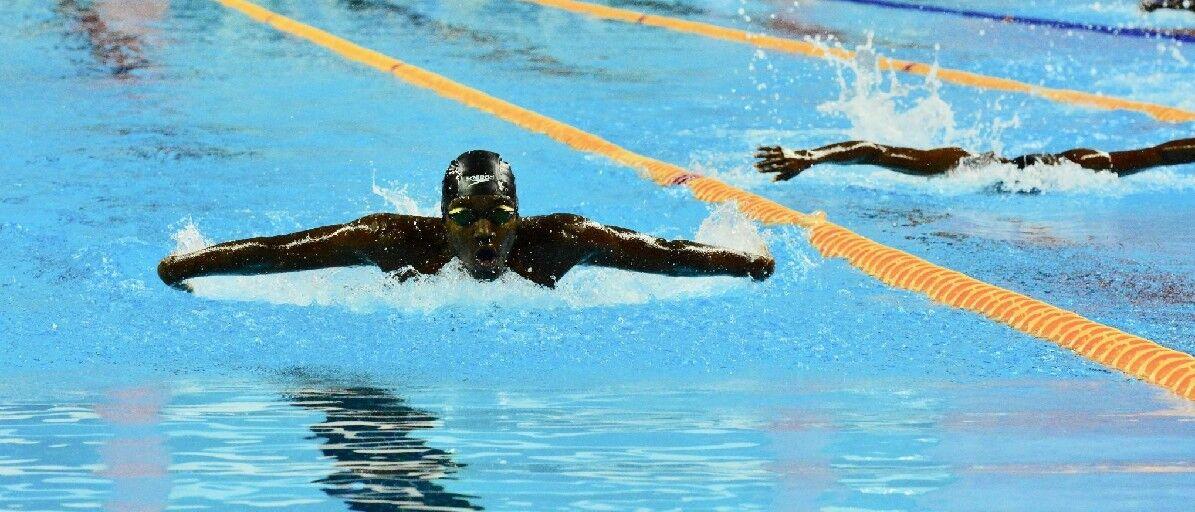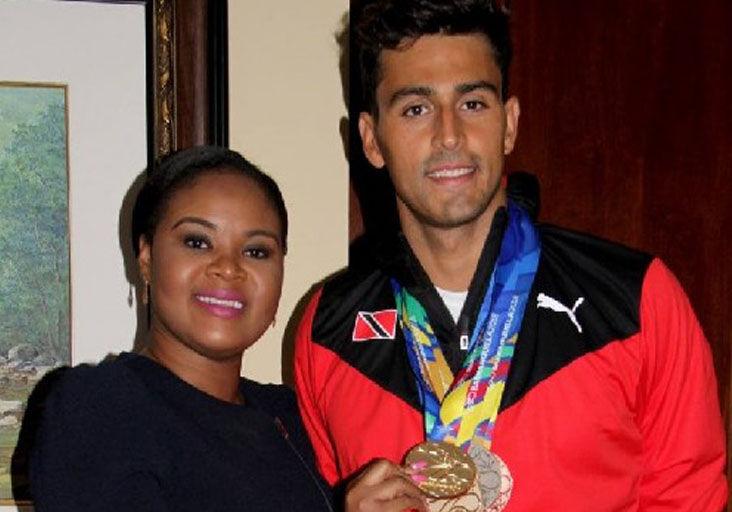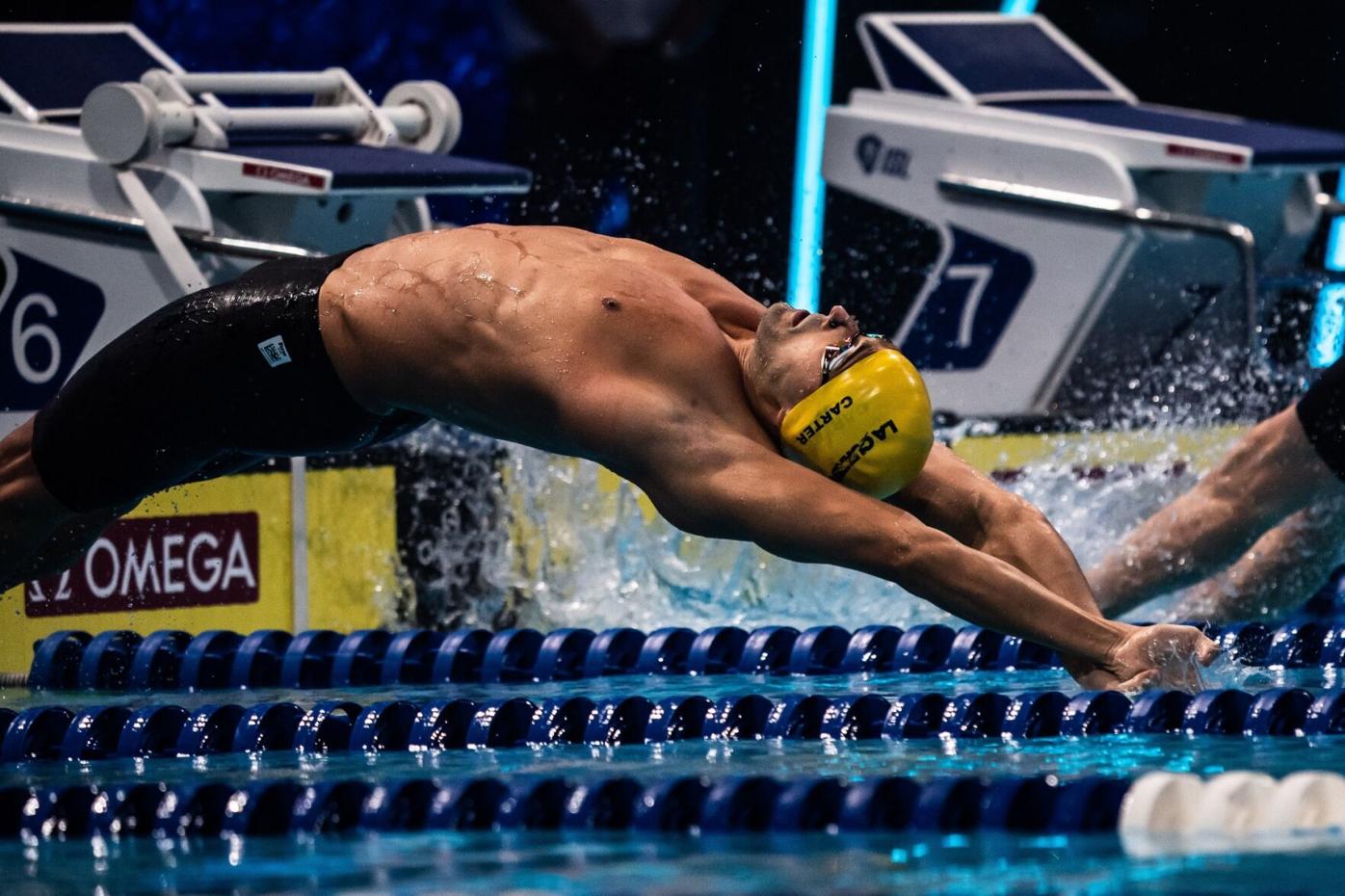HAVING ENDURED six weeks of intense competition at the International Swimming League (ISL) in Hungary, Tokyo-bound swimmer Dylan Carter is deeply motivated to return to the pool in anticipation of next year’s Olympic Games.
Carter and his Los Angeles Current (LAC) team concluded their ISL campaign at the Duna Arena in Budapest last weekend. There, he splashed to two gold medals and a bronze in the 4x100-metre freestyle, a pair of silver medals (50m, 100m backstroke) and racked up several personal and season-best times.
The 24-year-old returned to TT from his hectic schedule, on Thursday, and is presently in quarantine for seven days. Once he returns a negative covid19 test result, the national swimmer will be allowed to head home to his family.
He plans to take a short but well-deserved rest but has his mind set on resuming training before the Christmas holiday. Carter will represent TT in the 100m freestyle at next year’s Summer Games.
The national swimmer is unsure what his early 2021 competitive schedule may look like since several countries are facing a significant resurgence in covid19 cases and are tightening restrictions.
He has no intention of losing any form and competitive momentum, having executed several impressive performances at the ISL.
“A couple days off is fitting and needed. I’m refocusing because I don’t know when I’m going to get another chance to race. I need to get back in the water and continue to improve.
“When you race this much at the ISL, you learn so much and have to take that right back into training. The improvements you make over those weeks of racing, once you reapply it to training, it’s going to pay off in the next season.
“After a week or ten days off, I’m going to try to be back in the water working towards being faster for next year at the Olympics,” he said.
At the moment, it’s the uncertainty of pro competition in the near future that fuels his passion to continue training. According to Carter, the more training he can put in at the National Aquatic Centre in Couva, the higher his chances of extending his good run of form in the pool.
This will be Carter’s second stint at the Olympic Games having previously competed at the 2016 edition in Rio de Janeiro, Brazil.
The pandemic did restrict his training regime on the US circuit but the TT swimmer has no intention of using covid19 as a scapegoat excuse.
He believes the ISL served as a good competitive gauge for himself since scores of qualified and potential Olympians used this meet as preparation ahead of the Summer Games.
“We’re all experiencing the pandemic so this should be no excuse for any athlete. My goals are to do the best I can do, amidst all the challenges I, and other athletes have faced over the past couple months.
“Swimming is a sport I love and am grateful for. It’s given so much to me. I appreciate the sport and I live it. It gives me a great sense of self-fulfillment to see how far I could go with it and what level of mastery I can achieve. That keeps me going,” he added.
The LAC representative also highlighted the accomplishments of the Caribbean’s most successful swimmer, George Bovell III, for being an inspiration and mentor to him in the early stages of his athletic career.
Bovell III is an Olympic bronze medallist (2004 in Athens, Greece) and former world record holder. He is TT’s lone Olympic swimming medallist, as well as a two-time World Championship bronze medallist and a record five-time Olympian.
Overall, Bovell III has been in ten World Championship finals since his first in 2001 and has bagged six Pan American Games medals (two gold, two silver and two bronze) along with eight Central American and Caribbean Games medals (three gold, two silver and three bronze), both over three editions of the events.
“George has been nothing but motivation for me, as a mentor and showing me the ropes," said Carter. "As a youngster, it was important, when I first started travelling and representing TT at the international level, to have George there, to show me how to walk the walk and talk the talk.
"Those first years when George and I were around the team together, (that) laid the foundation for me for the rest of my career,” he said.
Just as Bovell III’s exploits inspired Carter to chase his dreams, the TT swimmer hopes his journey can also have a positive impact on youth swimmers within the region.
“A big part of me does it to inspire a generation. I’m incredibly honoured that I could be the one, or hope to be the one, doing that to young athletes at home. Swimming will take you far if you give a little bit of yourself into it.
“That’s a big part of what motivates me. Showing these kids where you can go with it now. Now there’s a professional league. When George was swimming that wasn’t even around. Swimming is bigger and has more opportunity than ever before,” he concluded.
JONATHAN RAMNANANSINGH

